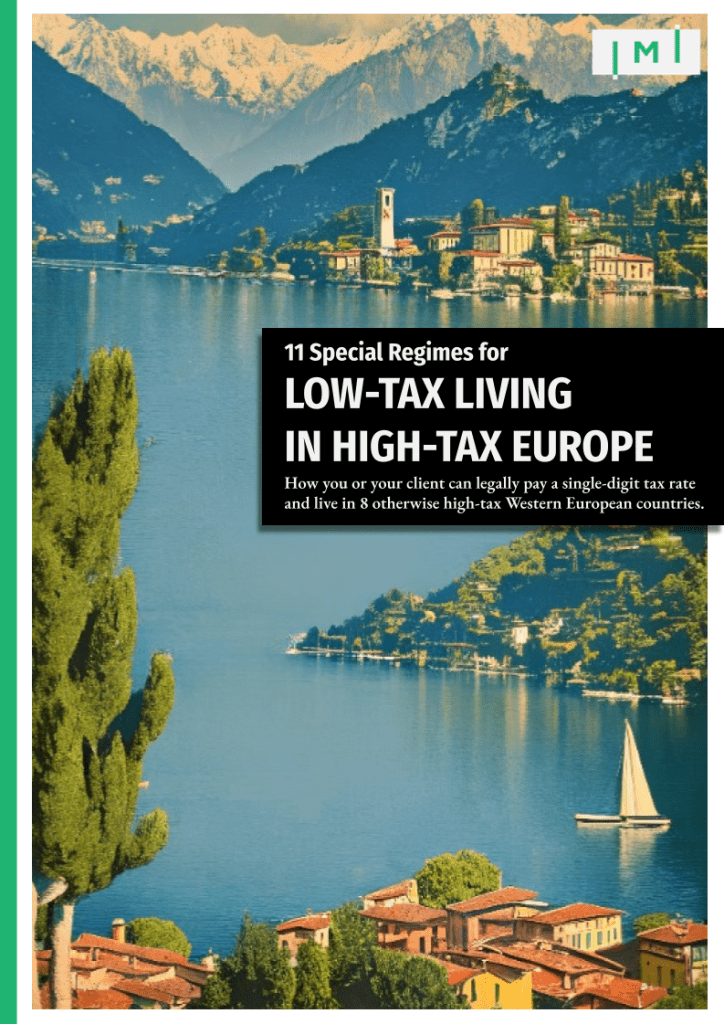The Link Between Taxation and Citizenship by Investment in Malta

Nicky Gouder
Malta
Many wonder about the tax implications of obtaining citizenship through the Naturalisation by Direct Investment route in Malta (“MEIN”). This article will provide clear answers to this common query.
First, it is important to note that there is no direct relationship between obtaining citizenship in Malta and being taxable therein.
Once an individual obtains Maltese citizenship as part of the above-mentioned program, he or she is not automatically deemed a tax resident or domiciled in Malta merely as a result of becoming a Maltese citizen. The attainment of tax residence or tax domicile in Malta depends on a number of other factors totally separate from the citizenship process.
An individual is deemed a tax resident in Malta if the individual resides in Malta for more than six months in one calendar year or resides in Malta with the intent to establish his or her residence therein. Once an individual is deemed a tax resident in Malta, he or she is subject to tax on:
- Income and Capital Gains arising in Malta; and
- Foreign income received in Malta.
Any other income or gains remain untaxable.
Therefore, while an individual could become a tax resident in Malta as a result of the number of days spent here, there is no automatic link between obtaining Maltese citizenship and being taxable in Malta.
The MEIN policy mandates a 12 (or 36) month residence period prior to qualification for citizenship. The term “residence”, in this case, is not linked to tax residence. Nor is it a requirement to spend 183 days in Malta prior to the attainment of citizenship. The attainment of tax residence in Malta is, therefore, dependent on the number of days the individual spends in Malta in a calendar year.
Malta’s income tax legislation also discusses the “intent” of the individual, and not simply the number of days being spent in Malta, when determining tax residence. The term “temporary resident” is defined as any person who is in Malta for some temporary purpose only and not with any intent to establish his or her residence therein. It goes without saying that any person who has the intent to establish residence in Malta, irrespective of the number of days spent, will be deemed a tax resident in Malta.
The concept of “domicile”, on the other hand, is distinct from nationality and residence. Every individual is born with a domicile of origin. Typically, this would be the domicile of the parents. An individual could change one’s domicile to a domicile of choice. This is done by severing all ties with one’s previous domicile with an intent never to return and to establish oneself and all one’s ties in the new domicile of choice. Here, again, the concept of obtaining citizenship in Malta does not result in a deemed tax domicile.
Typically, taxation comes into play when individuals relocate from one country to another. This could be both as a result of becoming taxable in a new country or of any exit taxes applicable in the country where one would be relocating from.
Obtaining tax residence is also important when considering the residence programs that Malta has available, such as the Global Residence Programme, which is a specific tax resident program for non-EU nationals.
On the other hand, the Malta Permanent Residence Programme (MPRP) is not a tax residence program and, similarly to MEIN, successful applicants of the MPRP will not automatically be deemed tax residents or domiciled in Malta.
It is important to understand when and if such taxes would apply prior to simply deciding on which citizenship or residence route seems most attractive.
Malta is one of the jurisdictions covered in our new guide:
11 Special Regimes for
Low-Tax Living in High-Tax Europe
How you or your client can legally pay a single-digit tax rate and live in eight otherwise high-tax Western European countries.
The report is for those attracted to Western Europe for its lifestyle proposition but deterred from residing there full-time by high levels of taxation. The report will show how you (or your client), by participating in special tax regimes that Western European governments have expressly designed to soften the fiscal blow for foreigners, can have your cake and eat it too.
Our guide covers 11 preferential tax regimes in Western Europe:
– Greece
– Ireland
– Italy
– Malta
– Portugal
– Switzerland
– United Kingdom
Nicky Gouder is a Partner at Seed, an international, research-driven advisory firm focused on helping clients achieve growth, deliver long-lasting impact, and deliver tangible results.



